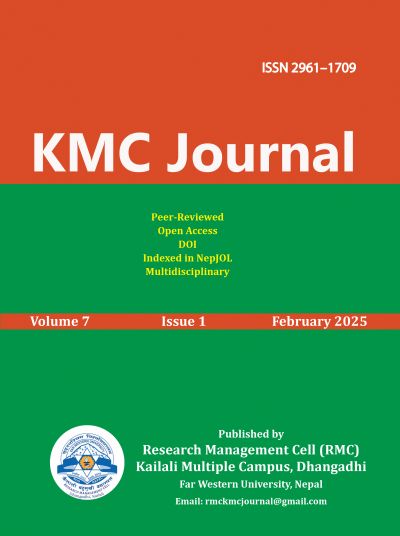Emoji Usage among Scholars in Messenger Group Interaction
DOI:
https://doi.org/10.3126/kmcj.v7i1.75160Keywords:
MPhil-PhD scholars, casual exchanges, body language, open dialogueAbstract
This study explores the use of emojis and abbreviations in scholars’ daily communication regarding social media conversation, particularly focusing on their perceived professionalism and impact on users’ reputations. The objective is to assess how these digital communication features are viewed within academic contexts. To achieve this, the research employed archival and survey methods over 22 days, documenting 501 emoji usages across 113 interactions or posts by MPhil-PhD scholars. Data were collected through three closed-ended questions to evaluate participants’ attitudes and perceptions. Findings reveal that the beating heart emoji is the most frequently used among academics in group discussions (51.8%), suggesting that it conveys strong emotional responses. The study highlights significant considerations regarding gender, religious and cultural biases in emoji usage, indicating that while emojis can enhance communication, their overuse may lead to negative consequences. It suggests that effective use of emojis in communication requires an understanding of context, audience and cultural sensitivity to avoid misunderstandings and maintain effective communication. This study underscores the importance of emojis in academic settings, enhancing emotional expression and influencing social dynamics as digital communication continues to evolve.
Downloads
Downloads
Published
How to Cite
Issue
Section
License

This work is licensed under a Creative Commons Attribution-NonCommercial 4.0 International License.
This license allows reusers to distribute, remix, adapt, and build upon the material in any medium or format for noncommercial purposes only, and only so long as attribution is given to the creator.




